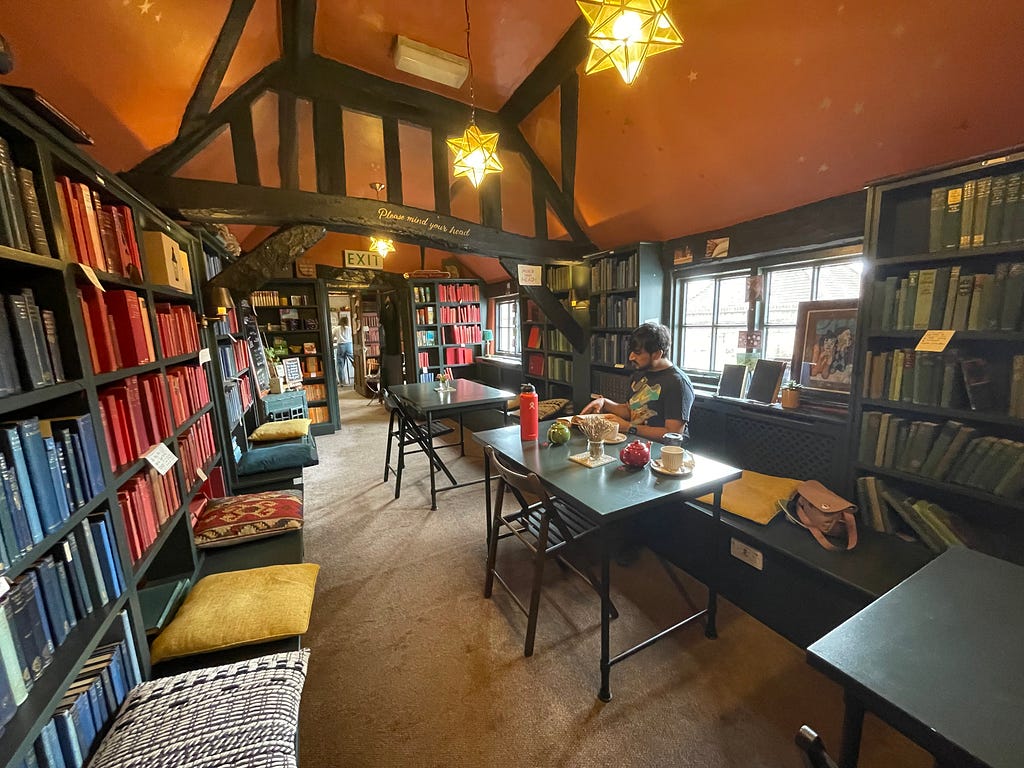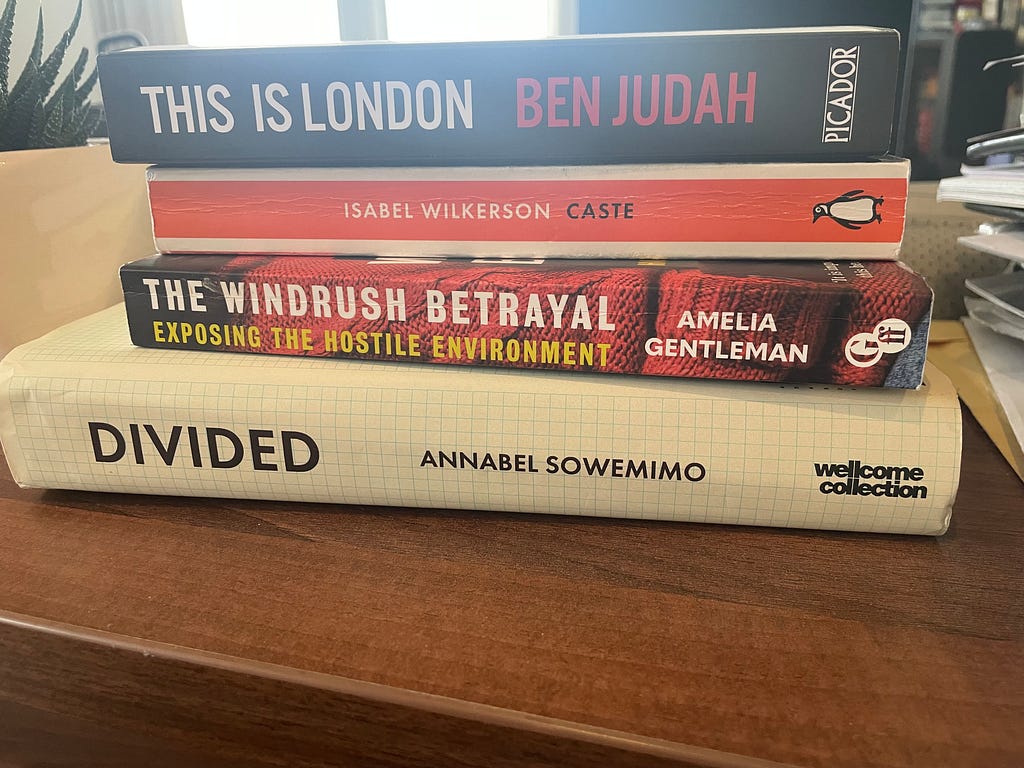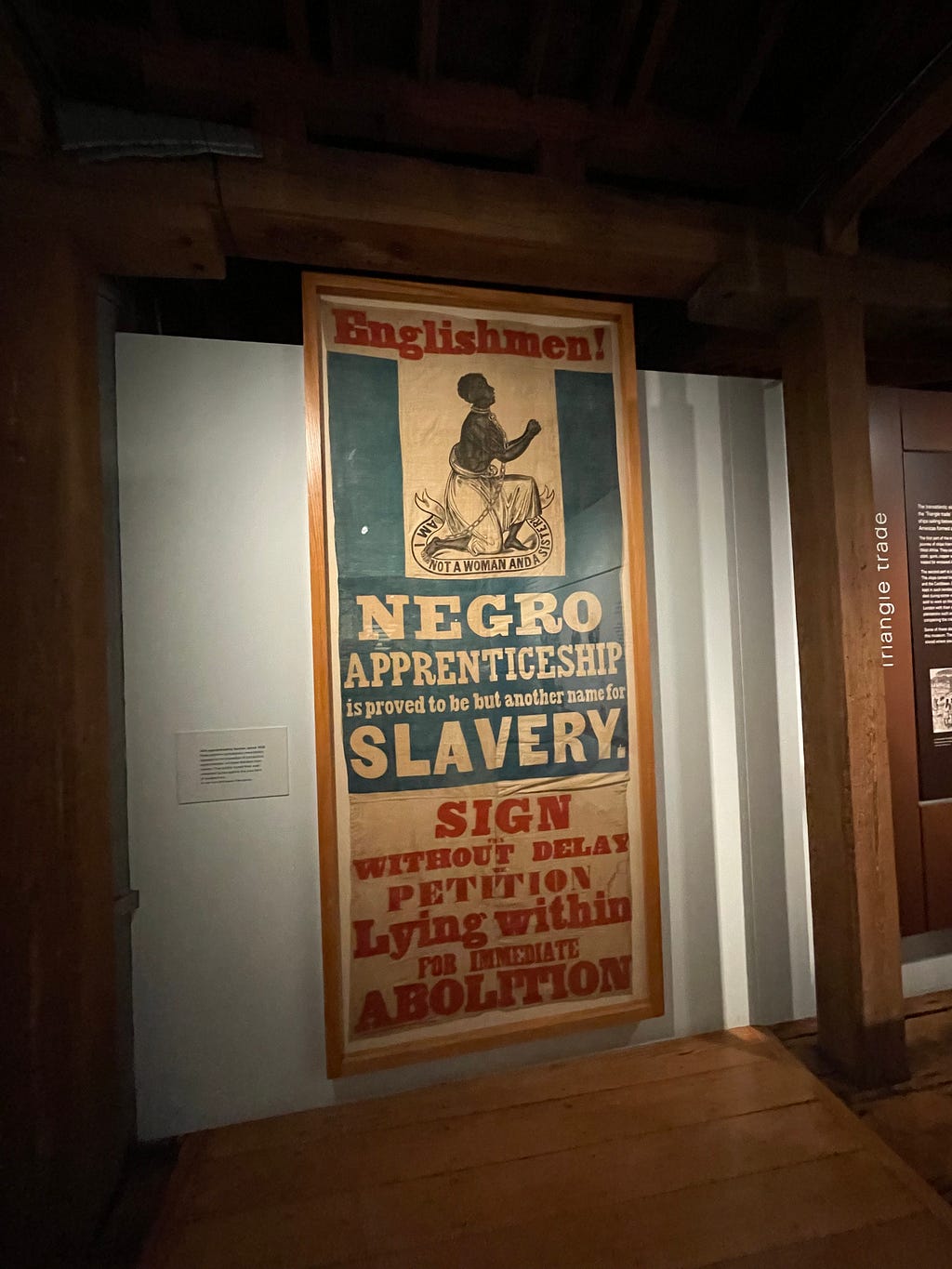
I wouldn’t call myself an avid reader. I am a decent reader who can get through at least a book a month but since moving to London early this year, I have been devouring books. It’s been a pattern I have noticed in myself. Whenever I feel lost, don’t know what to do or find myself in hospital waiting rooms (the ageing population crisis is real), I turn to reading. It feels like the most productive and low-stakes thing to do.
I might write a whole blog about moving to a different country in your 30s (haha) but for now, I thought I’d create a list of books I have read recently. It’s a post on how I have used these books to wrap my head around this city and learn its history and intricacies. The themes and topics in these books are pretty much what I am thinking about most of the time while I walk the streets. These books are just a start and there is SO MUCH more to read and understand.
I hope the post is helpful to anyone in London or just interested to know more. Let me know what you think!

- Divided by Annabel Sowemimo
“ We simply cannot hope to improve inequalities without understanding the ‘rotten foundations’ on which our scientific understanding is built”
I came across Annabel and her book at the WOW festival. Having worked on global health curriculums for the past two years, it didn’t come as a surprise that a lot of knowledge on health has deep-rooted historical pasts steeped in racism.
However, at the end of the book, I felt that maybe we can genuinely only think about decolonising our curriculums or raise awareness on how it’s deeply steeped in healthcare when we have a deep understanding and awareness of how this knowledge originated. Annabel’s book does a great job of doing this.
What are the histories behind these famous names we commonly use and how were they a part of this racist history? How much of the past can we identify in our curriculums now? Can we truly rid ourselves of this history when we teach? How can this awareness and questioning be the basis for all our students so that we stop being blind to inequalities?
Since then I have come across the Eugenics walk around UCL where I did my master’s. I now walk the streets much more aware of the names of streets, corporations and the history that surrounds the buildings of this country. For anyone who is walking around the Bloomsbury area, check out the podcast.
2. Caste by Isabel Wilkerson
This book was recommended to me by the women working at Roundtable Books (go check them out!!). It was an intense read and I had to put it down several times. I have often associated caste as something that was/is a huge part of India’s history but Isabel reframes it to highlight that:
“Caste is the granting or withholding of respect, status, honor, attention, privileges, resources, the benefit of the doubt, and human kindness to someone on the basis of their perceived rank or standing in the hierarchy”
One issue that I have struggled to understand, especially in the context of Britain, is how people of diaspora origin could be against immigration. It didn’t make sense that having had the same experiences or having parents who have the same experiences, one would not be able to empathise with fellow immigrants. Isabel answered this question with the quote below:
“Caught in the system that grants them little true power or authority, they may bend to the will of caste and put down their own if they wish to rise or be accepted or merely to survive in the hierarchy. They learn that they may not be held accountable because of they low status of those they betray or neglect”
3. Open Water
I needed something light after reading Caste and I don’t know why I thought Open Water would be a light read! It might be because I thought it would be a romance novel but the intricacies of race are so tightly woven into the story. It was a heartbreaking read going into the details of how race or as Isabel Wilkerson would say caste, impacts the mental health and everyday realities of someone’s life.
This brings us to the next book.
4. The Windrush Betrayal by Amelia Gentleman
 London, Sugar & Slavery exhibition at the Museum of London Docklands
London, Sugar & Slavery exhibition at the Museum of London Docklands
As a migrant rights advocate, this book infuriated my bones. I couldn’t wrap my head around how people who had seemingly done nothing but arrived here as British citizens had their lives torn apart. The injustice was incomprehensible to me. The city is celebrating Windrush 75 this year but for everyone who has been impacted by this
It highlighted how stories of people are often lost behind numbers when it comes to immigration. It was also a deep reminder of how we take our immigration status for granted sometimes.
5. This is London by Ben Judah
I haven’t finished this book but am a few chapters in. It’s intriguing because the author immerses himself within communities and tries to share their stories.
I was walking from the Singaporean embassy just two days ago through the same tunnel he spent the night with East European migrants and remember thinking to myself — It feels unreal to fathom the thousands of lived realities that we will never come across.
I guess I’ll never walk the streets of the city the same way again as I read more of these books.
